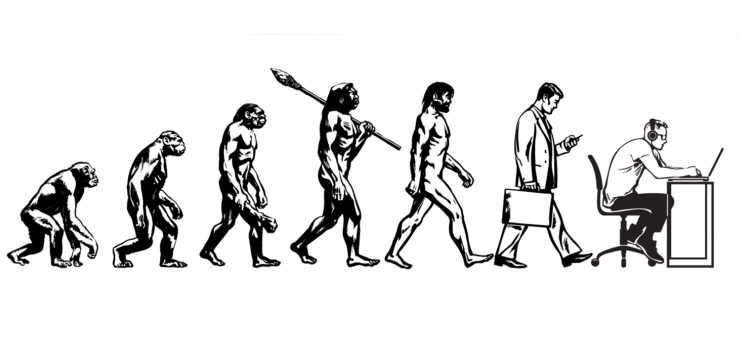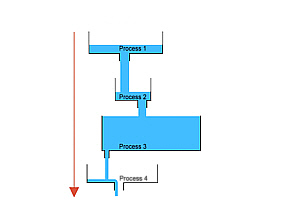
Everyone has at least one on their organization. You know the person I am talking about, the difficult person that finds something negative in virtually everything. You could be giving out $100 dollar bills and they would complain that they are not crisp enough. They are Citizens Against Virtually Everything, or as they are affectionately called "Cave" men (people), and they will derail your continuous improvement and LEAN programs if you let them.
Think I'm joking? Last year we had a plant meal of pizza from a local pizzeria which included an extended break. Someone actually complained to management because the pizza gave them gas. That is the very definition of a cave person.
In my organization, about 10% are early adopters that embrace the chance to change things for the better. The next group comprises about 80% of my workforce, and is what I call the "white rice" group. Like white rice, they take on whatever flavor you add to them, and generally will go whatever direction you clearly and consistently lead. The last group are the cave men (and women), and make up the bottom 10%.
So what are some strategies to deal with these difficult people? Here are a few ideas:
- Involved
Get them involved, as soon as possible, preferably in a longer term project. Don't let them stand on the sidelines and poison the culture; put them in the center of activity. You don't want them as a team lead, but they definitely need to be on a team.
Make them part of the solution. Make them answer the tough questions, and do some soul searching. Let them develop the solutions they will work with each day. A common reason for people with this mentality is that they feel their voice is not heard, and that they are not part of solution. You can address both of these by simply getting them involved.
The last OpEx we had featured 2 cave people, one who basically told me where to stick our continuous improvement efforts, and the other who was completely apathetic. Over the 3 months, the first became an early adopter and champion of the cause, and the second became white rice (one of the crowd willing to go along with the others). On the final call out both gave impassioned impromptu speeches about how the event had changed their work lives for the better. I can live with that.
- Sell The Benefits
Become a salesman, and put things in terms of how continuous improvement can improve their jobs. All too often in operations we focus on things like improved efficiency or quality, and forget the very simple fact that these are simply numbers with very little meaning to those on the floor. So put things and terms they can understand and have meaning to them. Things like the following are great selling points:
"You've been working scheduled overtime for months, and one of goals of this Op Ex is to eliminate it, while still offering voluntary overtime"
I don't want you to work more, I want you to actually work less. You have to move way to much in your job, and we'd like to eliminate so of the more strenuous parts of your work so you can sactually get more done with less physical effort."
"Won't it be nice after this Kaizen to not have to rework parts all the time?" - Listen
Listen to their input, and fix something, no matter how small. One of the things that drives nearly everyone crazy is to have great ideas only to see them never implemented. Doing even a few simple improvements that people want will begin to build trust and momentum in a positive direction.
When I first started my career in manufacturing in the printing industry, I remember a there was older woman that had a notoriously poor attitude. At the time I was a plant engineer with maintenance under my banner of responsibility. One day we were working on a project in her area, and she began to complain about her bad back, and how she wish she had a floor mat to stand on to help her. I asked if she had ever asked for one before, and she calmly stated yes, but "Ya'll aren't gonna get me one. The last 6 managers said they would, but no one has." This woman had been standing on a dilapidated mat for 10 years and had a lost time injury because of back issues. I dropped what I was doing, went to a local store and purchased her an ergonomic floor mat with my own money. I instantly won her respect.
- Success Cures Everything
Minimize their impact by succeeding. It's a simple fact of life that no matter what the endeavor, "haters" lose their power when you are winning. The "white rice" of your organization will follow whichever way things are trending, so make sure that is in a positive direction.
So don't let a Cave man or woman derail your continuos improvment efforts. Be proactive and actively engage them, sell the benefits, listen to their position, and show results. Do these and you can turn your detractors into your strongest advocates.






